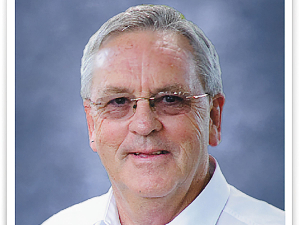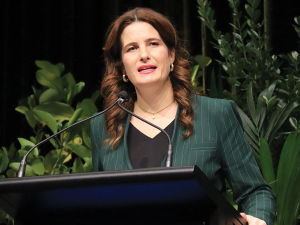Former ACT MP and Federated Farmers president Owen Jennings believes he's come across a new fertilising method in Australia that yields "outstanding results".
"In my travels I have always looked out for new farming methods for New Zealand, but this is the most spectacular and promising option I have encountered," Jennings says.
"It takes using natural, organics to a whole level with results that gobsmacked me. Frankly, I doubted the numbers until I found they were measured and verified, independently, by CSIRO in Australia."
He told Rural News that cattle on this fertilised pasture that were consistently achieving 1.2kg daily weight gains are now achieving 2.95kg.
"What is equally notable is that parasite loading was substantially reduced," Jennings adds.
"Wheat yield increases have been equally dramatic with the new fertiliser producing 5228kg a hectare compared to a control area of 3200kg and another block using a standard NPKS mix at 4132kg."
He says this result was achieved at a lower cost than the typical fertiliser mix and also included a massive drop in striped rust. Jennings says on a 1 to 10 scale, the new fertiliser came in at 1 while the standard mix could only attain a 6 mark.
"This new method involves a blend of ground down minerals - up to 90 separate minerals including some I had not even heard of - applied to a compost which is then spread at low rates once a year," he explains.
"The thinking is based on feeding the soil biota rather than the plant. The scientist behind the product, who has spent many years researching the option, says feeding the soil adequately in a balanced manner means the plants will be healthy and will optimise yields."
Jennings says one of the big advantages for him is how the fertiliser sequesters significant amounts of carbon in the soil. "On a Queensland vegetable growing property organic matter in the soil has gone from 0.58% to now sitting at 2.61% after 2 years of farming, which equates to 90 metric tonnes of carbon per hectare of 330 metric tonnes of carbon dioxide per hectate," he explains. "Soil health is radically improved and plant life is improved - so animals and humans using grass and crops all benefit."
Jennings adds other examples show a tomato crop improved from 130 tonnes per hectare to 290 tonnes, sugar cane from 130 tonnes to 290 tonnes, onions from 30 to 75 tonnes, ginger from 22 tonnes to 57 tonnes.
"These results are unbelievable without the CSIRO verification."
Jennings says he's very keen to get this fertiliser system into New Zealand.
Want To Know More?
Interested farmers can contact Owen Jennings at This email address is being protected from spambots. You need JavaScript enabled to view it. or ph 027 442 4933.











